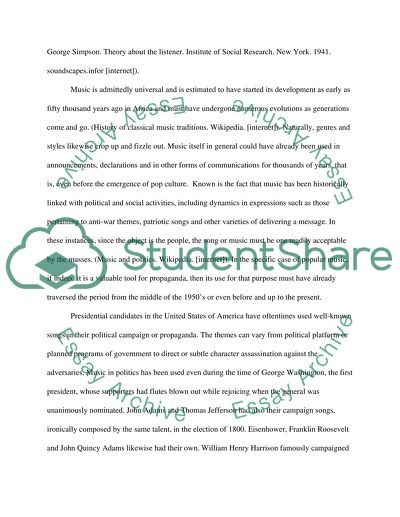Cite this document
(“Popular Music and Its Use in Propaganda Essay Example | Topics and Well Written Essays - 2500 words”, n.d.)
Popular Music and Its Use in Propaganda Essay Example | Topics and Well Written Essays - 2500 words. Retrieved from https://studentshare.org/miscellaneous/1520055-popular-music-and-its-use-in-propaganda
Popular Music and Its Use in Propaganda Essay Example | Topics and Well Written Essays - 2500 words. Retrieved from https://studentshare.org/miscellaneous/1520055-popular-music-and-its-use-in-propaganda
(Popular Music and Its Use in Propaganda Essay Example | Topics and Well Written Essays - 2500 Words)
Popular Music and Its Use in Propaganda Essay Example | Topics and Well Written Essays - 2500 Words. https://studentshare.org/miscellaneous/1520055-popular-music-and-its-use-in-propaganda.
Popular Music and Its Use in Propaganda Essay Example | Topics and Well Written Essays - 2500 Words. https://studentshare.org/miscellaneous/1520055-popular-music-and-its-use-in-propaganda.
“Popular Music and Its Use in Propaganda Essay Example | Topics and Well Written Essays - 2500 Words”, n.d. https://studentshare.org/miscellaneous/1520055-popular-music-and-its-use-in-propaganda.


